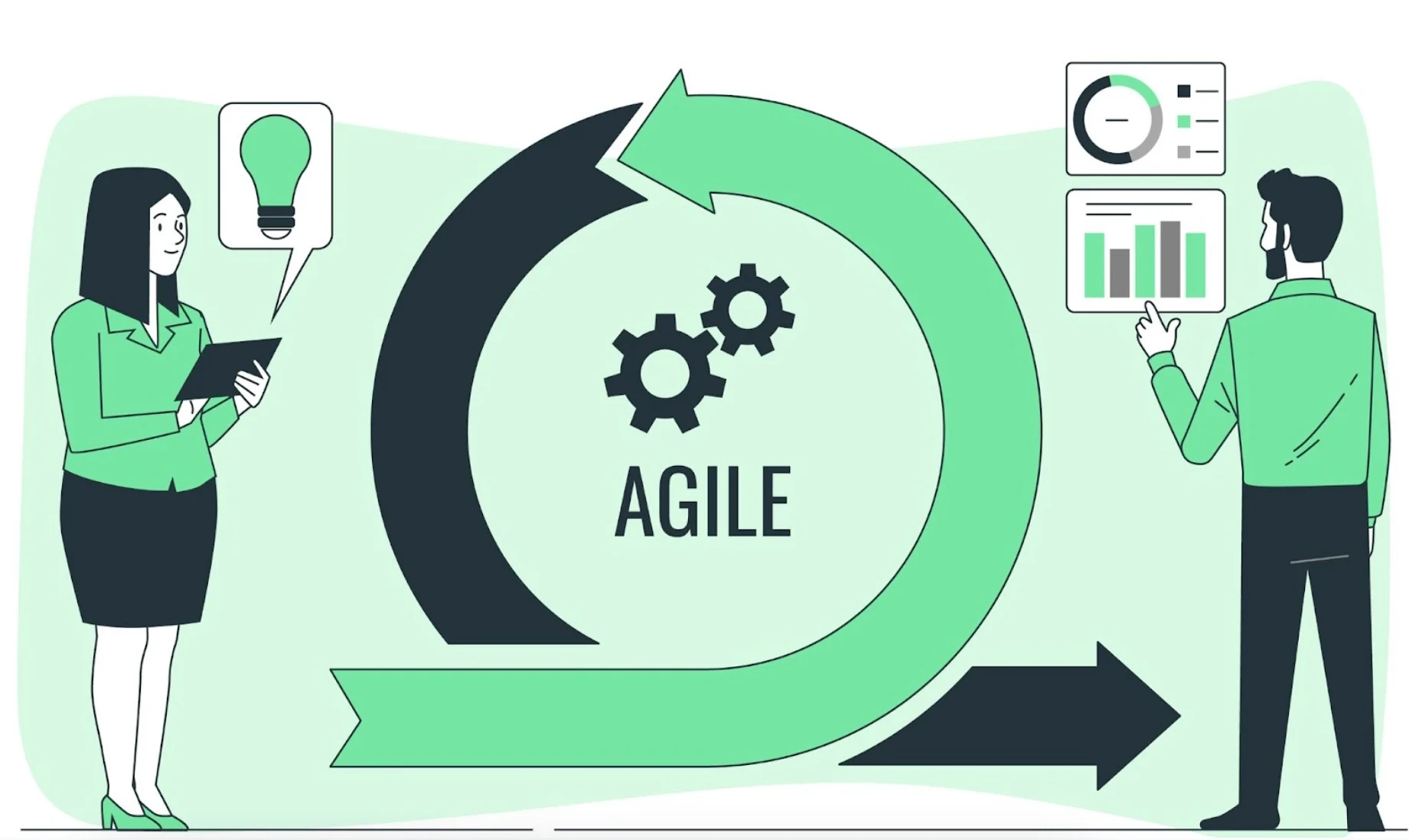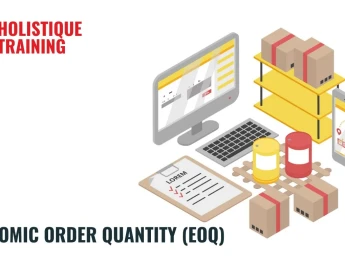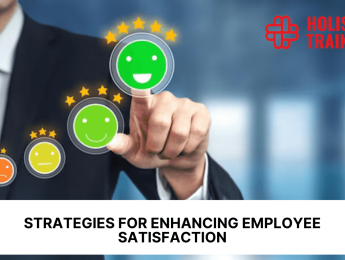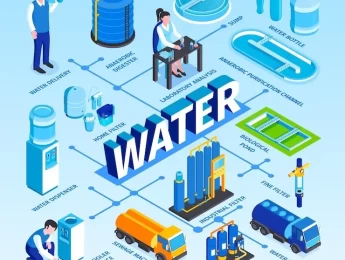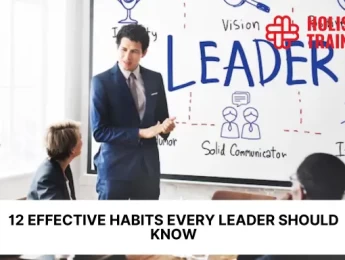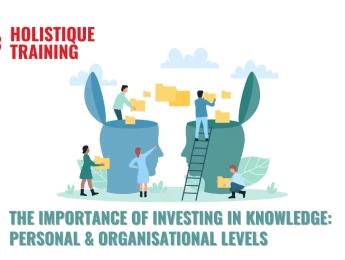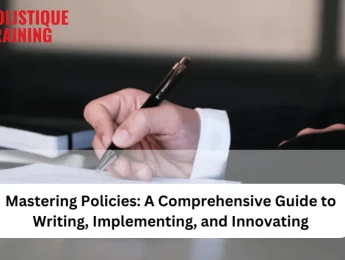Stepping into the role of an executive leader is a thrilling opportunity that comes with great responsibility. However, along with the triumphs, executive leaders must navigate through a series of formidable challenges. These hurdles test not only their strategic acumen but also their emotional resilience and interpersonal skills. In this blog post, we will delve deep into the ten most common challenges faced by executive leaders and explore effective strategies to conquer them. Furthermore, we will discuss the profound impact of a leader's psychological state on their ability to cope with these challenges and outline actionable steps to become a more effective and inspiring leader.
10 Challenges You'll Face As an Executive Leader
As you embark on your journey as an executive leader, it's essential to be prepared for the myriad challenges that lie ahead. Let's delve into the ten most common obstacles faced by leaders in this demanding role:
1- Decision Making Under Uncertainty
As an executive leader, the weight of decisions often rests on your shoulders. The complexity arises when these decisions must be made swiftly, with incomplete information. The pressure to choose the right path for the organisation while considering the potential consequences can be overwhelming. Every decision can influence the company's future, making it a constant challenge to balance risk and reward effectively. This becomes even more challenging during—and after—turbulent times, like pandemics. In fact, according to Business Leader, there has been a notable increase in decision-making paralysis following the COVID-19 pandemic in 2020.
2- Handling Conflict and Disagreements
Managing conflicts within a team is a delicate art. With diverse perspectives and backgrounds, conflicts can arise from differences in opinion, approach, or personal dynamics. Navigating these disagreements while ensuring that team cohesion remains intact requires diplomatic finesse. Leaders must mediate, empathise, and guide the team toward resolutions that are both fair and productive.
3- Managing Change and Adaptation
The business world is in a perpetual state of evolution. Executive leaders must not only anticipate change but also guide their teams through it. Resistance to change is common among employees, making it a challenge to implement new strategies or technologies smoothly. Adapting to change requires clear communication, empathy, and a strategic approach to ensure that the organisation transitions seamlessly.
4- Balancing Short-Term Goals with Long-Term Vision
Striking the right balance between short-term gains and long-term sustainability is a constant juggling act. Immediate goals may demand attention, but neglecting the long-term vision can jeopardise the company's future. Executive leaders must make decisions that align with the organisation's overarching goals, ensuring that short-term achievements contribute positively to the long-term trajectory.
5- Time Management and Prioritisation
Executive leaders often find themselves pulled in multiple directions, managing a myriad of tasks simultaneously. According to Forbes, one of the top 5 challenges faced by executives is time restraints (22%). Effective time management is essential to focus on strategic priorities. Prioritising tasks, delegating efficiently, and avoiding distractions are crucial to ensuring that time and energy are channelled toward the most impactful endeavours.
6- Building and Leading High-Performing Teams
Crafting a high-performing team involves more than just assembling skilled individuals. It's about fostering a sense of unity, motivation, and shared purpose among team members. This challenge requires leaders to understand the unique strengths and weaknesses of each team member, promoting collaboration and harmony while ensuring that everyone works towards common objectives.
7- Navigating Ambiguity
Ambiguity often arises in rapidly changing environments or when faced with unprecedented challenges. Executive leaders must navigate through uncharted territories, making decisions with limited information. This requires adaptability, intuition, and a willingness to take calculated risks, as well as the ability to instil confidence in the team despite uncertain circumstances.
8- Dealing with External Pressures
Executive leaders are accountable not only to their team but also to stakeholders, shareholders, customers, and the public. Managing these external pressures while upholding the organisation's values and vision can be daunting. It requires a delicate balance between meeting external expectations and ensuring that the organisation's integrity and core principles remain intact.
9- Overcoming Imposter Syndrome
Imposter syndrome is a psychological challenge where accomplished leaders doubt their abilities and fear being exposed as frauds. Despite their achievements, they may feel undeserving of their position. Overcoming this internal struggle demands self-reflection, confidence-building, and a recognition of one's accomplishments and capabilities.
10- Coping with Stress and Burnout
Executive leadership is demanding, often leading to high levels of stress and potential burnout. The constant pressure to perform, coupled with the responsibility for the team's success, can take a toll on mental and physical well-being. Coping with stress involves adopting effective stress management techniques, maintaining a healthy work-life balance, and seeking support when needed.
Navigating these challenges requires not only skill and experience but also resilience, empathy, and a deep understanding of both the organisation and its people. Executive leaders must continuously adapt and grow, facing these challenges head-on to ensure the success of their teams and organisations.
Ways to Overcome These Challenges
With a clear understanding of the common challenges faced by executive leaders, it's time to equip ourselves with the right tools and approaches to tackle these obstacles head-on. Let's explore actionable ways to overcome these challenges and emerge as effective and resilient leaders:
Embrace Data-Driven Decision Making
Embracing data-driven decision-making involves not only collecting data but also analysing it effectively. By relying on data, executive leaders can minimise uncertainty and make well-informed judgments. Data-driven insights provide a solid foundation upon which decisions can be made, ensuring that choices are rooted in facts and analysis rather than intuition alone.
Table 1: Decision-making framework
Step | Description |
1. Gather | Collect relevant data and information. |
2. Analyze | Analyse data to identify trends and patterns. |
3. Consult | Seek input from experts or team members. |
4. Decide | Make a well-informed decision based on data. |
5. Evaluate | Continuously monitor outcomes and adjust as needed. |
Foster a Culture of Open Communication
Open communication is the cornerstone of a healthy work environment. By encouraging open dialogue, executive leaders create a space where team members can express their thoughts, ideas, and concerns freely. Constructive feedback is welcomed, creating an atmosphere of trust. This openness enhances collaboration, resolves conflicts more efficiently, and ensures that everyone's voice is heard and valued.
Cultivate a Growth Mindset
According to Channel Futures, a recent survey conducted among employees across various Fortune 1000 companies revealed that individuals working in growth mindset organisations reported significant advantages. Specifically, they expressed being 47% more inclined to view their colleagues as trustworthy and 34% more likely to experience a profound sense of ownership and commitment towards the company. With that said, you need to promote a culture of continuous learning and embrace change. Encourage your team to view challenges as opportunities for growth, fostering innovation and adaptability.
Develop a Strategic Roadmap
A well-defined strategic roadmap acts as a guiding light for the organisation. It provides a clear direction, outlining short-term objectives and the long-term vision. Transparent communication of this roadmap aligns the team, fostering a sense of purpose and motivation. By having a roadmap in place, executive leaders ensure that every decision and action is geared towards achieving the organisation's overarching goals.
Prioritise Ruthlessly
Prioritising tasks is crucial in the face of numerous responsibilities. Executive leaders must identify the most impactful initiatives and allocate resources accordingly. Effective prioritisation ensures that the team focuses on activities that align with the organisation's objectives. Delegating tasks when appropriate allows leaders to concentrate their efforts on critical aspects, maximising efficiency and productivity.
Invest in Team Development
Building a high-performing team requires continuous investment in team development. Training programmes, workshops, and team-building activities enhance skills, improve collaboration, and foster a sense of camaraderie. By investing in their team members' professional growth, executive leaders not only enhance the team's capabilities but also create a supportive environment that encourages innovation and mutual support.
Embrace Flexibility
Embracing flexibility means being open to change and encouraging a culture of experimentation. When team members feel safe to explore new ideas and approaches, they are more likely to innovate. Calculated risk-taking becomes a norm, allowing the organisation to adapt swiftly to changing circumstances. Flexibility promotes agility, enabling the organisation to navigate challenges and seize opportunities effectively.
Seek Support and Mentorship
Executive leaders benefit greatly from seeking support and mentorship. Mentors, peers, or executive coaches provide valuable perspectives, guidance, and insights. Sharing experiences and challenges with trusted advisors helps leaders gain clarity and make informed decisions. Mentorship provides a safe space for leaders to discuss ideas, seek advice, and learn from others' experiences, enhancing their leadership capabilities.
Acknowledge and Celebrate Achievements
Acknowledging achievements, both big and small, is vital for boosting morale and confidence within the team. Recognising individual and collective accomplishments reinforces a positive work culture. Celebrations create a sense of achievement, motivating team members to continue striving for excellence. By acknowledging successes, executive leaders instil a sense of pride and accomplishment, enhancing team motivation and engagement.
Prioritise Self-Care
Executive leaders often neglect their well-being due to their busy schedules. However, prioritising self-care is crucial for maintaining mental and physical health. Engaging in stress-relief practices, pursuing hobbies, maintaining a healthy work-life balance, and taking regular breaks are essential. By prioritising their well-being, leaders set an example for their team, encouraging a culture of self-care and work-life balance within the organisation.
By implementing these strategies, executive leaders can navigate the challenges effectively, fostering a resilient and high-performing team while ensuring the organisation's continuous growth and success.
How Your Psychological State Affects How You Cope with Challenges
The psychological state of an executive leader profoundly impacts their ability to tackle challenges effectively. Emotional intelligence, self-awareness, a positive mindset, and stress management are crucial aspects of a leader's psychological well-being. Understanding and nurturing these traits can significantly enhance your leadership prowess and team dynamics.
Emotional Intelligence
Emotional intelligence is the ability to recognise, understand, and manage one's own emotions, as well as the emotions of others. Leaders with high emotional intelligence can empathise with their team members, fostering trust and open communication. When faced with challenges, emotionally intelligent leaders remain composed, enabling them to make rational decisions. Understanding the emotions of others allows leaders to address concerns effectively and resolve conflicts, creating a harmonious and supportive work environment.
Self-Awareness
Self-awareness involves recognising one's own emotions, strengths, weaknesses, and limitations. Leaders who are self-aware can assess their reactions to challenging situations, allowing them to respond thoughtfully rather than react impulsively. By acknowledging their strengths and weaknesses, leaders can delegate tasks effectively, seek support in areas where they lack expertise, and make decisions that align with their capabilities. Self-aware leaders can also model humility, inspiring their teams through authenticity.
Positive Mindset
A positive mindset is a powerful tool that shapes how leaders perceive challenges. Leaders with a positive outlook view setbacks as temporary and opportunities for growth. This mindset fosters resilience, enabling leaders to bounce back from failures and setbacks. Positivity is contagious; leaders who exude optimism inspire their teams, encouraging them to approach challenges with a solutions-oriented attitude. A positive leader can uplift team morale, enhance creativity, and maintain a motivated workforce even during difficult times.
Stress Management
Stress management skills are essential for leaders to cope with the demands of their roles. Leaders who effectively manage stress remain calm under pressure, enabling them to make clear decisions. Techniques such as mindfulness, meditation, exercise, and proper time management help in reducing stress levels. By prioritising their mental and physical well-being, leaders enhance their resilience and mental clarity, allowing them to navigate challenges without being overwhelmed.
Cultivating Emotional Resilience
Emotional resilience refers to the ability to bounce back from adversity. Leaders with emotional resilience view challenges as opportunities for personal and professional growth. They learn from failures, adapting their strategies and approaches. Resilient leaders inspire their teams by demonstrating perseverance and determination. By maintaining a resilient mindset, leaders can guide their teams through tough situations, instilling confidence and motivation.
Developing Adaptive Coping Strategies
Coping strategies vary from person to person, but adaptive coping mechanisms are crucial for leaders. Adaptive coping involves facing challenges directly, seeking support when needed, and reframing negative situations positively. Leaders who develop adaptive coping strategies can handle setbacks without losing momentum. These strategies might include seeking mentorship, learning new skills, or focusing on personal well-being. Adaptive coping not only helps leaders navigate challenges but also serves as a model for their teams to cope effectively.
Balancing Confidence and Humility
A balanced psychological state involves a blend of confidence and humility. Confident leaders inspire trust and conviction in their team's abilities. However, humility allows leaders to acknowledge their mistakes and learn from them. Striking this balance fosters a healthy self-esteem, allowing leaders to approach challenges with confidence while remaining open to feedback and continuous improvement. Leaders who balance confidence and humility create a supportive environment where team members feel valued and empowered.
Understanding and nurturing these psychological aspects not only enhance a leader's ability to cope with challenges but also contribute to a positive organisational culture. Leaders who prioritise their psychological well-being and foster a supportive environment for their teams create a resilient, innovative, and motivated workforce, ensuring sustained success for the organisation.
What You Need to Do Internally to Become a Better Leader
To become an exceptional executive leader, continuous self-improvement is vital. Adopting a growth mindset, seeking feedback, developing resilience, leading by example, and fostering innovation are key internal steps to enhance your leadership capabilities.
Continuous Learning
A commitment to continuous learning is foundational to becoming an exceptional leader. This involves staying abreast of industry trends, emerging technologies, and evolving leadership practices. Engaging in continuous education, attending seminars, reading relevant literature, and participating in professional development programmes enhance a leader's knowledge base. By being well-informed, leaders can make informed decisions and inspire their teams with up-to-date insights and innovative strategies.
Seek Feedback
Actively seeking feedback is a mark of a great leader. Constructive criticism, whether from peers, subordinates, or mentors, offers invaluable insights. Embracing feedback, both positive and negative, fosters personal growth. Leaders who are receptive to feedback can identify areas for improvement, refine their skills, and adapt their leadership style to better serve their teams and organisations.
Develop Resilience
Resilience is a fundamental trait of effective leaders. It involves bouncing back from setbacks, learning from failures, and maintaining composure under pressure. Resilient leaders view challenges as opportunities for growth. By developing resilience, leaders inspire their teams to face adversity with courage and determination. Learning from failures instead of dwelling on them empowers leaders to make better decisions and guide their teams through turbulent times.
Lead by Example
Leading by example is a powerful way to influence others. A leader who exemplifies the values, work ethic, and integrity they expect from their team sets a strong standard. By demonstrating dedication, accountability, and ethical behaviour, leaders cultivate a positive organisational culture. Team members are more likely to follow the ethical guidelines and work standards set by a leader who embodies these principles daily.
Foster Innovation
Leaders play a pivotal role in fostering innovation within their teams. Encouraging a culture where creativity and new ideas are valued inspires team members to think outside the box. Leaders should create an environment where innovative thinking is not only encouraged but also rewarded. Embracing diverse perspectives and promoting a culture of curiosity and experimentation can lead to groundbreaking solutions and foster a spirit of innovation within the organisation.
Practice Empathy
Empathy is a cornerstone of effective leadership. Understanding the emotions, concerns, and perspectives of team members builds trust and rapport. Empathetic leaders are attuned to the needs of their team, providing necessary support and encouragement. By acknowledging the human aspect of leadership, leaders can create a supportive and inclusive environment where team members feel valued, fostering stronger bonds and higher morale within the team.
Encourage Collaboration
Collaboration is key to solving complex problems and driving innovation. Leaders should actively encourage teamwork and interdisciplinary collaboration. By fostering an environment where diverse ideas are welcomed and collaboration is valued, leaders promote a sense of unity and shared purpose among team members. Collaborative efforts often lead to creative solutions and enhance team cohesion.
Promote Work-Life Balance
Recognising the importance of work-life balance is crucial for both leaders and their teams. Leaders should set realistic expectations, avoid overloading their team members with excessive work, and encourage regular breaks and vacations. By promoting a healthy work-life balance, leaders contribute to their team's overall well-being, reducing stress and burnout. This approach results in a more energised and motivated workforce, ultimately boosting productivity and creativity.
By incorporating these internal strategies into their leadership approach, executives can create a positive, empowering, and innovative environment within their organisations. These efforts not only enhance their personal leadership skills but also contribute significantly to the growth and success of the entire team and organisation.
Conclusion
As an executive leader, you will face numerous challenges along your journey. By embracing data-driven decision-making, fostering open communication, cultivating a growth mindset, and nurturing your team, you can overcome these obstacles and lead your organisation to unparalleled success. Recognise the significance of your psychological state and invest in personal development to improve your leadership effectiveness. Remember, leadership is a continuous journey, and by striving to become a better leader, you will inspire greatness in both yourself and your team.
If you're eager to embark on a transformative journey of perfecting your management and leadership skills, make sure to check out our course, ‘Perfecting Your Management and Leadership Skills.’ This comprehensive programme is designed to equip you with the tools and insights needed to excel as an executive leader, empowering you to navigate challenges with confidence and drive lasting organisational success. Don't miss the opportunity to unlock your full leadership potential and enrol in the course today.






